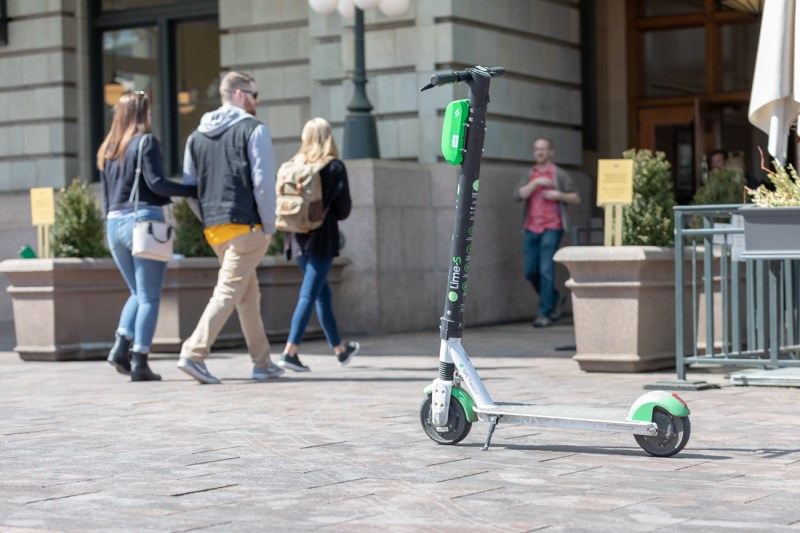Eyes on the Street: Badly Parked Scooters Get in the Way

Hey scooters … scoot over.
As Denver considers making the little electric vehicles a permanent feature on the city’s streets, their riders are behaving badly. They often abandon scooters in the middle of sidewalk, leave them directly in front of building entrances or park them in front of the ramps wheelchair users use to board trains.
Even people who support the new mobility option say scooters block the flow of pedestrians.
“I get it. It’s a very efficient, fun way of getting around,” says William Peace, an anthropologist and bioethicist who uses a wheelchair and public transit. “But the user just dumps them anywhere.”

The city’s scooter pilot program, which has allowed some 1,500 scooters on Denver’s streets, ends Aug. 1. Over the next six weeks, officials within the Department of Public Works will assess whether the program should continue.
For now, some of the five companies participating in the program have tried to reign in bad parking by asking riders to photograph where they park the vehicles. But the city isn’t sure if that helps.
“Anecdotally, it is thought that a photo-requirement increases user awareness of their parking choices,” said Heather Burke, a spokesperson for DPW, which runs Denver’s scooter pilot. “We’re working with the operators to understand if they have seen significant improvements.”

If the program continues, Denver could change its policies around scooter parking, including measures like charging the companies for parking or creating special places for people to leave them.
Denver does not provide designated parking spots for scooters but other places are doing exactly that, including the Regional Transportation District, the University of Denver, and cities like San Diego, and West Lafayette, Indiana, home to Purdue University.
Denver could also consider charging the scooter companies for parking, as cities like Charlotte, Detroit and Omaha have done.
On a recent afternoon, Streetsblog walked around the most popular neighborhood for the vehicles, the Union Square area, and spotted dozens of scooters. Roughly half were parked in a way that interfered with others using sidewalks and plazas.

Users of Lime scooters are repeatedly reminded to park responsibly, according to Evan Costagliola, director of Transportation Partnerships for the company, which operates 438 scooters in Denver.
When users sign up for the mobile-app based service, they must swipe through a series of rules, tips and suggestions (which Streetsblog found easy to ignore). The same ideas are reinforced through regular emails sent to users, he says. And the company’s employees hit Denver’s streets to talk to riders.
“We go out into the community with brand ambassadors and community affairs managers to teach people about the technology and how to use it,” said Costagliola. “All done with the intent to get people to ride safely and be responsible users of the system.”
William Peace says that riders, whether they park badly or buzz uncomfortably close to his wheelchair, are not aiming to make his life difficult.
“The scooter users not waking up and saying, ‘I want to block the access to the train today for people with disabilities.’”
But he hopes the city — and the scooter companies — will figure out how to stop the problematic parking.
“I use a wheelchair. I am 24 inches wide,” he said. “And that means when you dump it in the middle of the sidewalk I’m not getting by. When one is left in the curb cut, I’m not getting by.”
Better walking. Better biking. Better transit. Support the nonprofit mission of Streetsblog Denver. Give $5 per month.


